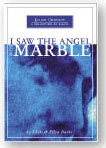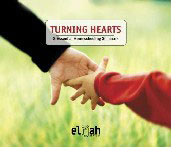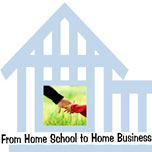
E-journal July 29, 2008 |
Last week I wrote about a fight that broke out on my front lawn between two tenants who live in apartments I own. You can read that story HERE>> The thought that occurred to me as I walked away from the fight was, “These people’s lives are more like dime store novels than like great literature.” I wasn’t saying that as a judgment, but as an observation. And that observation led to a whole train of thought about the difference between a “dime store novel” life and a “great literature” life. What kind of a life is a “dime store novel” life? "Dime novel" or “dime store novel” has become a term to describe any lurid, poor quality novel, play, opera, or film that is generally sensationalized and superficial. Let’s look at the typical content of a dime store novel. First, there is a hero or heroine who is in a state of constant crisis, whose life consists of one fire after another that has to be put out. Second, the hero or heroine has a history of hard luck. He or she is usually misunderstood, facing some sort of dire financial situation, and/or on the run from unsavory characters. Third, none of it appears to be his or her fault. Calamity seems to just come out of the blue; doom looms around every corner; people do cruel things to them for no apparent reason. There is always someone or something else to blame for their life’s difficulties. Fourth, the characters are all highly reactive. They overreact to situations by making dramatic statements, putting on shows of emotion, or spinning stories about events in their lives that are embellishments of the truth. These stories generally cast themselves in the role of the victimized hero or heroine and other people in the role of villain. Fifth, their lives leave a trail of emotional, physical, financial, and spiritual debris. Things around them seem to be constantly damaged, destroyed, in some state of disrepair or tottering on the brink of disaster. Sixth, their lives constantly churn up drama, and not just low-level drama, but lurid, sensational drama. A lot of this drama remains unresolved, creating “cliff-hangers” where everything in their lives is precariously hanging on until the next dramatic event, which usually involves some sort of heroic rescue from impending doom. Seventh, their dramas require an audience. There has to be someone to tell their embellished, sensationalized stories to and act out their dramas in front of. “Dime store novel” people are always trying to build an “audience” of people who will take sides with them and agree with them that they are victims. So they usually surround themselves with other “dime store novel” people. I don’t know if you’ve ever seen any of those old “Perils of Pauline” silent movies, but they are typical of the dime store novel plot. Pauline, the heroine, is an orphan who is continually mistreated and always in some sort of crisis, most often involving lack of finances. Her nemesis, usually the evil, lusting landlord, demands money or illicit favors from Pauline, which she either doesn’t have (in the case of money) or refuses to give (in the case of favors). All of this happens in about 10 minutes of film, with dramatic music playing in the background. There is no character development, no plot development, no depth of meaning, no subtlety and no real acting. Everything is done in caricature. Pauline’s emotive skills boil down to gasps, screams, and swoons. The landlord acts out his evilness by giving sinister looks and twirling his moustache, and the hero expresses his hero-ness by striking “strong man” postures. It is strictly superficial entertainment. Audiences left the theater with their hearts pounding and their feelings scintillated. Compare a Dime Store Novel to Good Literature I won’t spoil the story for you if you’ve never read it, but I will say that by the end of the book you feel like you really know and care about Jane and Edward and there is a deep sense of inner satisfaction with the depth of the story and its characters. It all seems “real” and substantial. You also feel touched on every level—emotionally, mentally, and spiritually and feel a better person for having read the book. All of us can point out people we know whose lives are either like dime store novels or like good literature. Since I do quite a bit of counseling, I find that most people who seek counseling do so because their lives have become like dime store novels—moving from crisis to crisis—and they want to change. So, what does this have to do with home schooling? One of the main reasons we chose to home school our children was because we wanted to mold their characters into something more like fine literature than like a dime store novel. We wanted to expose them to people, places, and experiences that developed in them a sense of greatness and purpose, because we knew that the culture around them was training its children to be superficial and mediocre. We wanted them to be “bigger” than any problems or difficulties that would come their way in life, and we wanted them to become responsible adults who didn’t adopt “victimhood” as a lifestyle. How did we do that? By focusing them on people, places, and experiences that were the opposite of “dime store novel” people, places and experiences. First, we taught them how to prevent creating “fires” in their lives by planning and thinking things through beforehand. Second, we taught them that bad things do happen to good people, but because God works everything for the good of those who love Him, you can never really label a situation as “bad” because you don’t know how God is going to use it for good in your life yet. So getting dramatic and over-reacting when difficulties come into your life is not only wasted effort, but is also a lack of faith in God's ability to provide for you. Third, we taught them that blaming others for your life’s difficulties doesn’t accomplish anything but give you a sense of victimhood and make you bitter. Bitterness is actually a state of disbelief in God’s love and kindness towards you and victimhood is often a way for you to evade responsibility for your own life choices. Fourth, we taught them that being reactive is to be in resistance to life and actually shuts off the flow of abundance, grace, and joy in your life. Reactive people have a hard time “receiving” God’s blessings because they live their lives in opposition to them. Plus, reactivity takes up emotional, mental, and spiritual "space" in your life that could be used for something much more creative and valuable. Fifth, we taught them that, just like in the Boy Scout creed, we should leave things in better condition than we found them. There is no excuse for leaving a trail of emotional, physical, financial or spiritual debris behind you as you move through life. It shows a tremendous lack of respect for property and for other people. Sixth, we taught them that constant drama is the sign of a person who wants to get the attention from others that they are unwilling to give themselves. Seventh, we taught them that what they want is relationships, not an audience. An audience is fickle and can easily turn on you or forget you. But true relationships will be there for you in good times and in bad, and will even point out when your life is becoming like a “dime store novel.” I hope this article provokes some thoughts of your own on what kind of lives you want yourself and your children to lead. To view all the Resources for great children's literature, GO HERE>> Be sure to sign up for our ejournal! Sign up below. Resources for rethinking education With over 4,000 copies sold in just a few months, I Saw the Angel in the Marble is becoming a home schooling best seller! This book represents the best of 15 years of Elijah Company articles. Find our more HERE>>
Resources to discover how your child learns best
|
It's Going Fast! My friend Susan is a home schooling Mom and she is very concerned about her children's health. Her son, Liam is allergic to almost every chemical known to man, so Susan has to be very, very careful what she allows him to play with. When he gets together with other children and they play with Play Doh, Liam can't play. The dyes and chemicals in the dough can not only make him very sick, they might kill him. Rhea's Entrepreneur Days 1) Create additional income or replace current monthly income 2) Reduce debt to manage monthly bills 3) Work for yourself instead of for someone else 4) Train your children to own their own business so they can become financially free
If you missed one of our From Home School to Home Business Conferences, you missed a great time.People who have attended tell us that it changed their lives—not only in the area of home schooling, but also in the area of creating their own sources of home income.This set is huge and filled with useful and encouraging information about how to be successful at home schooling and at home business! Find out more about this life-changing set of CDs HERE>> Building the Business of Your Dreams (8 CD Set) I've had requests for just the business portion of the From Home School to Home Business Seminar, so have developed a set of the business CDs from that set. It contains 8 CDs and includes sessions on The Entrepreneurial Mind, Multiple Streams of Home Income, Discovering Your Ideal Life and Ideal Business (2 CDs) , Developing a Business Plan (2 CDs), and The Importance of Business Relationships. Plus, there is a very important and insightful interview on Redeeming the Marketplace. Find out about this life-changing set of CDs HERE>> SALE PRODUCTS!
Limited Quantities All home schooling materials fall into two main categories: traditional textbook curricula and non-textbook curricula. For more detailed explanations of each teaching approach, and for resources that help you choose teaching materials for the upcoming school year, GO HERE>> The Traditional Approach In the Traditional Approach, graded textbooks or workbooks follow a scope and sequence that covers each subject in 180 daily increments over a span of 12 years. Teacher's manuals, tests, and record keeping materials are usually available that correspond to each of the texts. Textbook curricula assume you will run your home school like an institutional school. Non-Textbook Approaches Although there are a number of excellent textbook and worktext programs available, many home educators object to the fact that textbooks are teacher-directed, chalkboard-oriented, and seldom take into account different teaching approaches or the different ways children receive and process information. © Copyright 2008. Home School Marketplace, 1053 Eldridge Loop, Crossville, TN 38571. Be sure to sign up for our ejournal!
Sign up below.
|
 Like A Dime Store Novel, part 2
Like A Dime Store Novel, part 2

 Endangered Minds
Endangered Minds

 Mary Pride's Complete Guide to Getting Started in Homeschooling.
Mary Pride's Complete Guide to Getting Started in Homeschooling.  Life Skills for Kids
Life Skills for Kids

 Homeschooling the Early Years
Homeschooling the Early Years
 What Your Kindergartner Needs to Know
What Your Kindergartner Needs to Know Discover Your Child's Learning Style
Discover Your Child's Learning Style Discover Your Children's Gifts
Discover Your Children's Gifts Dreamers, Discoverers and Dynamos.
Dreamers, Discoverers and Dynamos.




